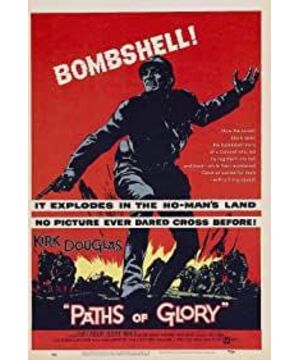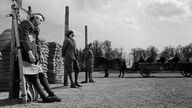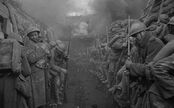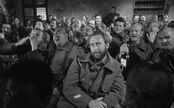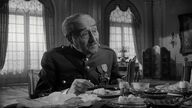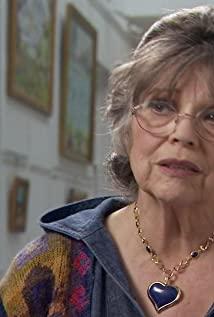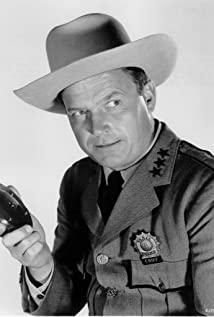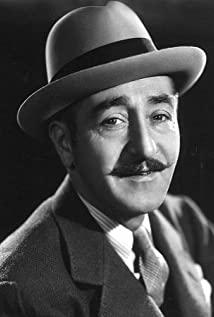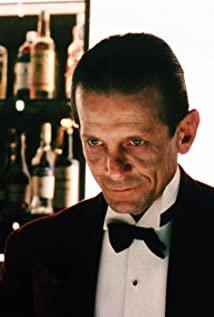Kubrick sent three completely innocent soldiers to the execution grounds, making them victims of human sin. Among the three of them, one was because he had offended the chief and learned the secret of the chief manslaughter of his comrades, one was because of his uncomfortable character, and the other was chosen by lottery simply because of bad luck. We saw that none of the three of them deserved to die, and a high-sounding military court could take their lives without any worries. So Dax Dax sighed in the military court: "I have been ashamed of being a member of human beings several times, and this will be once. Convicting him will be the crime of each of you before death. I don’t believe the most. The precious person and his pity will die here."
Then we saw the most disturbing scene in the film on the execution ground. Kubrick deliberately lengthened the footage and deliberately slowed down the pace of the film. From the wide, symmetrical and balanced avenue on the execution ground, three people were taken to the execution ground. An exaggerated cry to the priest about his nostalgia for this dunya, and constantly externalizing his fear of death through actions, a man who endured great pain pretending to be calm and wanted to sacrifice his life as a hero, and Another ridiculous person was carried on a stretcher, and their ritual to execute the death penalty on an unconscious wounded in a coma was more like a farce. The rhythm is so slow that audiences who have been trained by the classic Hollywood model are waiting for the miracle to appear, waiting for the "last-minute rescue" under the Griffith tradition. But Kubrick told us that under the cruel reality of war, there will never be a "last-minute rescue", so the single-threaded story came to a sad end.
When the Dax officer finally watched the French soldiers mocking a captured German woman at the entrance of the hotel, Kubrick made a "last minute rescue" about human nature. When the German woman sang the folk songs of her hometown with her timid voice, the audience was silent. There was no more mockery, no yelling, and the French soldiers shed precious tears. Kubrick wanted to say that in fact, people's hearts are all connected. We all breathe the same air and share the same emotions. (This story may have a historical prototype, which also took place during World War I. When British soldiers hummed the tune of the British national anthem in the trenches, the enemies in the trenches also hummed.)
And this movie master Liu Bieqian was in him. The same is reflected in the war movie "You Flee and I Flee". Lubitsch let his characters are repeated application of the one we are all familiar lines:
? Hath not hath not A A Eyes of Jew of Jew Hands, Organs,
Hath not a Jew limbs, facial features,
Dimensions, Senses, affections, Passions?
No feeling, no emotion , Is there no blood?
fed with the same food, hurt with the same weapons,
he is not eating the same food, the same weapon can hurt him,
subject to the same diseases, healed by the same means,
warmed and cooled by the same winter and summer, as a Christian is? The
same medicine can heal him. It will be cold in winter and hot in summer, just like a Christian?
If you prick us, do we not bleed?
If you stabbed us with a sword, wouldn't we also bleed?
if you tickle us, do we not laugh? If you tickle us, do we not laugh
?
if you poison us, do we not die? If you poison us, do we not die
?
and if you wrong us, shall we not revenge?
Then if you wrong us, shall we not revenge ?
———— "The Merchant of Venice" William Shakespeare
I think this is the effort Kubrick made in the "Last Minute Rescue". He wants us to re-examine ourselves and examine the most essential commonalities between us as human beings. Place. In fact, we are not as special as we thought, when we take off those glorious and noble ideologies. Human nature is interlinked.
Published in the November 2012 issue of "Oriental Art · Everyone"
View more about Paths of Glory reviews


